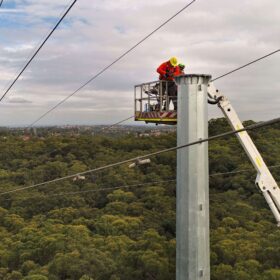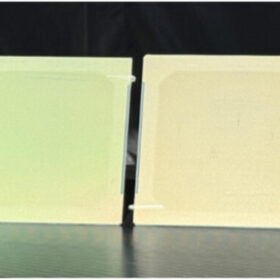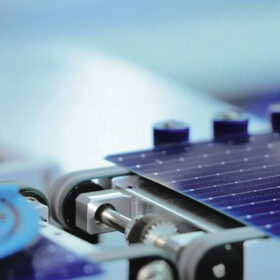To make silicon PV panels better suited for building integrated PV (BIPV) applications, such as low load-bearing facades, as well as roofs of older buildings and warehouses, researchers based in Switzerland and Austria built novel glass-free modules. The target weight was less than 6 kg/m 2 and the mechanical and environmental robustness was the focus of testing.
“The research was motivated by the urgent need for lightweight, visually appealing, and structurally robust photovoltaic modules suitable for building integration — especially for retrofitting older buildings and lightweight roofs that cannot support traditional glass-based PV modules,” co-corresponding author of the research, Umang Bhupatrai Desai, told pv magazine.
The design featured a backsheet component made of a polypropylene honeycomb core between glass fiber-reinforced composite skins in a sandwich structure, which Desai noted was “promising” due to its mechanical stiffness and low weight. In addition, polymeric frontsheets were explored as “alternatives to glass to reduce weight,” while maintaining optical performance. In addition, encapsulated colored foil was integrated into some of the modules.
“This combination aimed to address both the mechanical reliability and aesthetic demands of the BIPV market,” Desai explained.
The panel components were as follows: a composite backsheet consisting of glass fiber reinforced polymer (GFRP) skin, polymeric honeycomb, GFRP skin, commercially available polyolefin elastomer (POE) encapsulant without UV additives, M2-sized mono-facial passivated emitter rear connect (PERC) cells, encapsulant, colored foil, encapsulant, and polymeric frontsheet.
The researchers evaluated two polypropylene skin variants with fiber densities of 820 and 660 g/m 2, with the high fiber density exhibiting greater rigidity. Other mechanical and environmental aging tests, such as 2,000 h damp heat, 400 thermal cycles, 60 kWh/m2 UV exposure, and 40 humidity-freeze cycles, were completed in parallel, resulting in less than 5% power loss.
“The low degradation under harsh environmental aging, exceeding IEC 61215:2021 conditions, exceeded conservative expectations,” co-corresponding author, Antonin Faes, said.
Hail impact and fire ignition tests were also conducted. “While the impact of 25 mm hail stones was survived, fire tests revealed that the honeycomb core showed damage under the flame exposure but could be classified to pass class E of the ISO 11925 fire standard,” Desai said.
As for the impact of the colored foils on the PERC module’s performance, the module efficiency without color was 19.4%, which declined to 14.28% for the dark gray color and 11.92% for the beige color.
Further module testing and related work is planned. “We are currently monitoring the performance of these modules in the form of a façade to understand their performance in the actual outdoor operation in the central European climate,” Faes said.
The research team included members from École Polytechnique Fédérale de Lausanne (EPFL), Center Suisse d’Electronique et de Microtechnique (CSEM), Österreichisches Forschungsinstitut für Chemie und Technik (OFI), Polymer Competence Center Leoben GmbH (PCCL), and Montanuniversität Leoben
The team presented the module design and test results in “Novel Mechanically Robust and Environmentally Stable Light-Weight Colored Photovoltaic Modules Based on Composite Polymer Backsheets,” recently published in Solar RRL.
This content is protected by copyright and may not be reused. If you want to cooperate with us and would like to reuse some of our content, please contact: editors@pv-magazine.com.








By submitting this form you agree to pv magazine using your data for the purposes of publishing your comment.
Your personal data will only be disclosed or otherwise transmitted to third parties for the purposes of spam filtering or if this is necessary for technical maintenance of the website. Any other transfer to third parties will not take place unless this is justified on the basis of applicable data protection regulations or if pv magazine is legally obliged to do so.
You may revoke this consent at any time with effect for the future, in which case your personal data will be deleted immediately. Otherwise, your data will be deleted if pv magazine has processed your request or the purpose of data storage is fulfilled.
Further information on data privacy can be found in our Data Protection Policy.